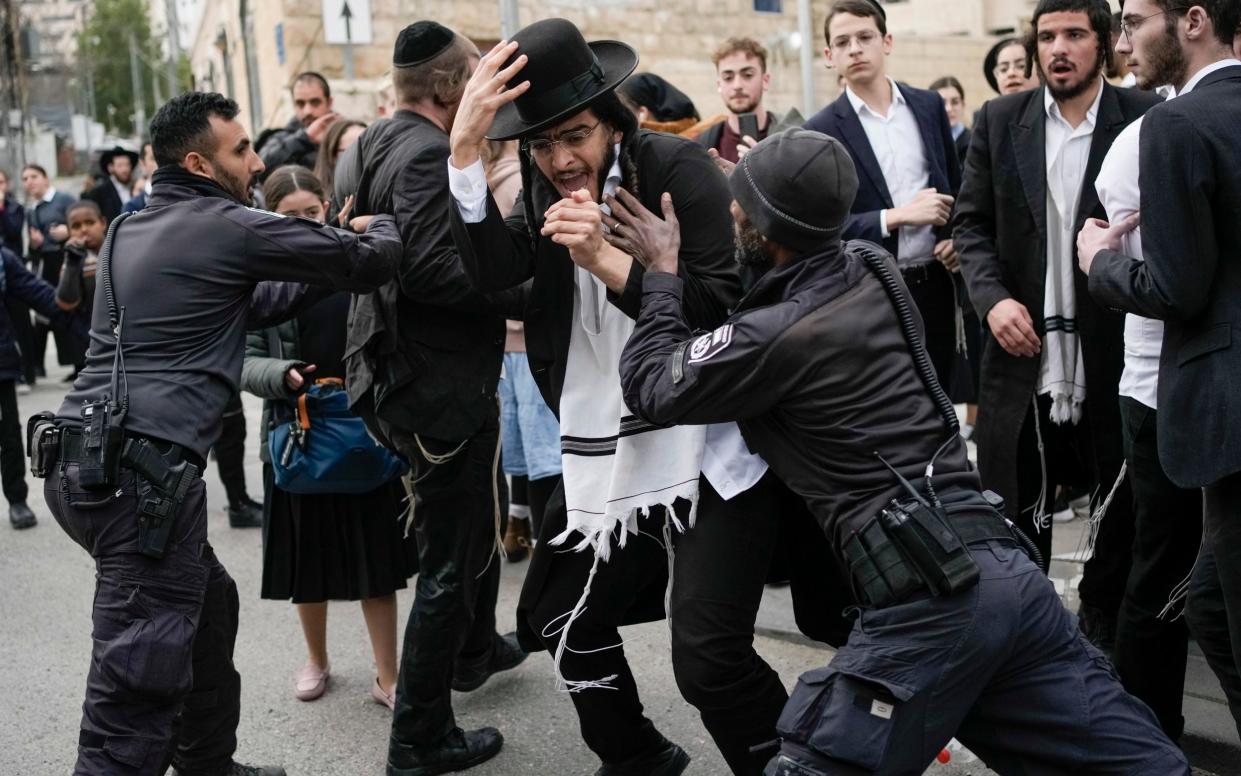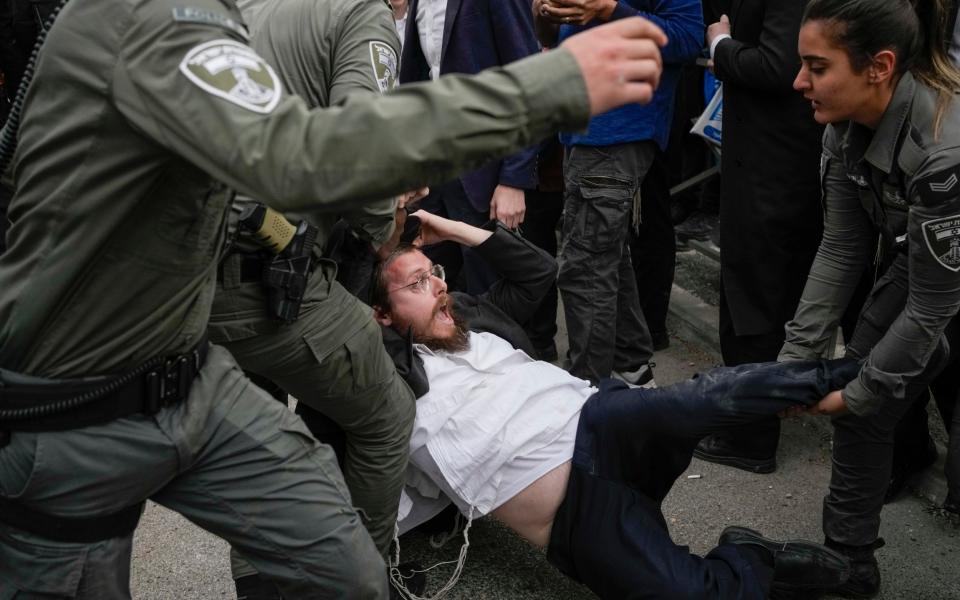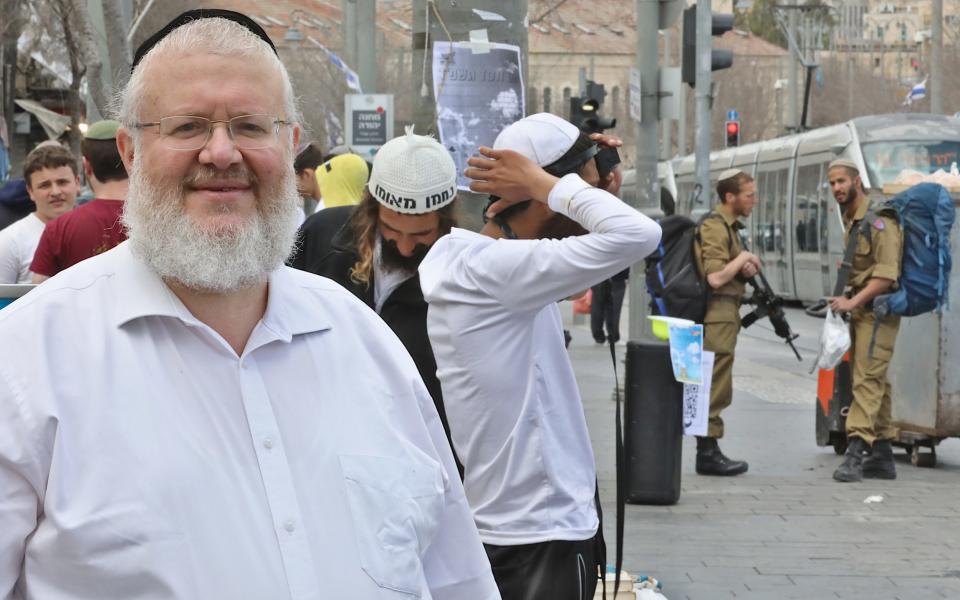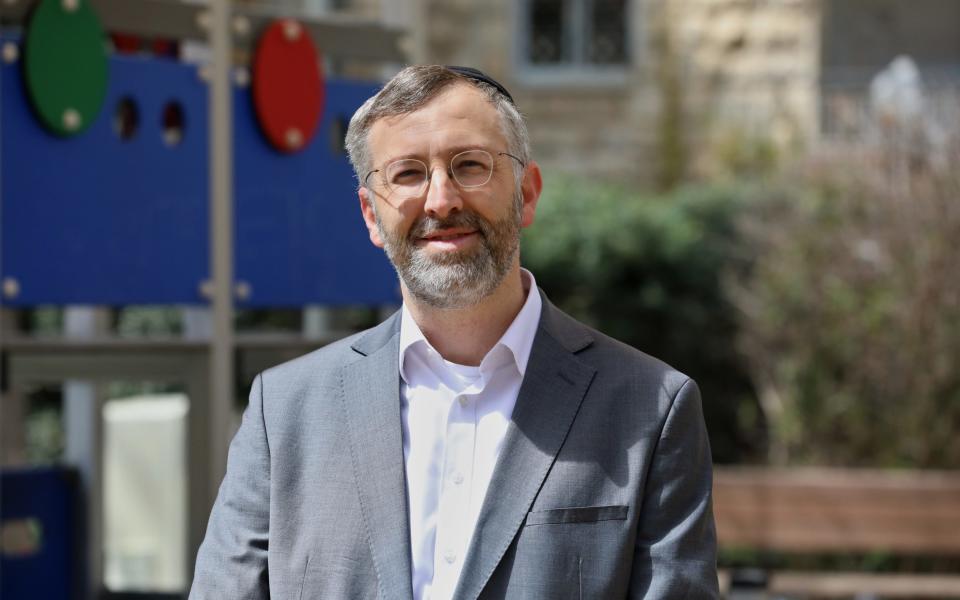‘They won’t die for something they’re not part of’: why Israel’s ultra-Orthodox won’t join the army

- Oops!Something went wrong.Please try again later.
The Israeli government’s future is hanging in the balance as it faces a major test over whether to start conscripting tens of thousands of ultra-Orthodox citizens to plug a growing gap in the armed forces.
Prime Minister Benjamin Netanyahu has until the end of the week to explain why he has not yet done so despite several legal rulings, growing pressure from his defence minister and the public, and a shortfall of 7,000 soldiers.
He is in a tight spot.
Increasingly unpopular with secular Israelis, Mr Netanyahu has in recent years banked his political survival on a coalition with Right-wing, religious parties.
His current coalition allies include the ultra-Orthodox Shas and the United Torah Judaism party, both of whom have indicated that they would quit and trigger a general election if he revokes the exemption.
The High Court of Justice first ruled that the current blanket draft exemption for the ultra-Orthodox community - known in Hebrew as Haredim - was discriminatory and therefore illegal back in 2017.
Successive governments since then have passed various makeshift pieces of legislation to avoid tackling the highly divisive issue, the most recent of which was in June last year.

But the war in Gaza - along with fighting on the Lebanese border and sporadic clashes across the West Bank - has made the issue critical.
All yeshiva students in Israel under 26 are exempt from military service, a ruling that dates back to the creation of the State of Israel when the community was just several hundred people.
However, the explosive growth of the ultra-Orthodox community since then means some 66,000 young men currently do not have to serve in the army - an all-time high, according to the IDF.
Out of 2,000 Haredi volunteers who wanted to enlist after October 7, the IDF said 450 have been accepted, out of about 170,000 active duty personnel.
On Thursday, thousands of people rallied in Tel Aviv calling for an equal “sharing of the burden”.
Rare intervention
A top general leading Israeli troops in Gaza’s Khan Younis even made a rare intervention this week, calling on the Israeli leadership to ensure that “everyone takes part” in the army.
But those in the community say it is not so simple.
Haredi rabbi Nechemia Steinberger is one of those “taking part”. He joined the IDF during the Covid-19 pandemic and did reserve service after the outbreak of the war in Gaza.
Smartly dressed in a grey suit and white shirt, he does not look like his more conservative peers who wear black suits, sidelocks, or payot, under their felt hats and have strings hanging from their shirts.
When he came back from his service, a man tried to block him from entering his local synagogue while wearing his uniform, because he was “setting a bad example to children”.

He said Haredi families fear that sons would lose their religious identities if they spent months or even years rubbing shoulders with secular Israelis.
“The army changes everyone,” said Rabbi Steinberger. “The sad truth is Haredim will not be able to sacrifice the change of their children because their ethos for the past 150 years was: We do not change. That’s their raison d’etre.
“They see the army as a secular place, as part of the Jewish Zionist state that they don’t fully identify with,” he added.
“You don’t want your children to die for something you’re not part of.”
Many Haredim in Israel live in isolated, run-down neighbourhoods where laundry hangs in the street, starkly different from the modern cities of Tel Aviv or Jerusalem.
Maths or science
Most men do not work and boys are not expected to go to school, with many lacking basic skills in maths or science. About half of the community are estimated to live below the poverty line.
They are a close-knit community devoted to the study of the Torah and tend to eschew participation in Israel’s secular affairs.
The focus on their assimilation into the Israeli army has led to angry statements from some quarters.
Chief Sephardic Rabbi Yitzhak Yosef threatened to lead an exodus of ultra-Orthodox Jews if the exemption was scrapped.
“If they force us to go to the army, we will move abroad… We will buy a ticket. We will go there,” he said this week.
It is an issue that should not be handled clumsily, warns Moshe Lefkowitz, the ultra-Orthodox founder of a charity that works with underprivileged children, including many Haredim.

“The moment you try to force something on the community against its wishes, it will feel under attack, they will rally together and push back,” he said.
He blames the government for creating a system that allows Haredi youth to keep studying the Torah just to avoid the army, even though many would be better off entering the workforce.
“A whole generation grew up with an idea that they don’t want to work because they’re afraid they will be sent to the army. As a result, they are not studying, and they are not working,” he said.
The hot potato issue has become a useful political tool for Mr Netanyahu’s opponents to pressure him - possibly even undo him completely.
Benny Gantz, Israel’s most popular politician, on Thursday boycotted a meeting with Prime Minister Netanyahu and ultra-Orthodox parties after the government refused to discuss his party’s proposal for Haredim conscription.
Yaov Gallant, the defence minister, who did attend the meeting, warned that Israel is in the middle of a “war we have not known for 75 years” which requires “agreements and decisions that we have not made in 75 years”.
Young and healthy
Speaking at Thursday’s Tel Aviv rally, opposition leader Yair Lapid told local TV that the IDF was “stretched”.
“There are not enough soldiers, and at the same time there are 66,000 young and healthy members of the Haredi community, at enlistment age, who are not joining,” he said.
After years of delays and workarounds, the coming weeks may finally see some movement on the exemption.
“With each passing day, it becomes increasingly clear that we will need a new reality in Israel,” Yohanan Plesner, head of the think tank Israel Democracy Institute, wrote in a recent report.
“Israel’s security burden is growing, and extended service is required from populations that are already bearing the brunt of security and economic concerns.”
“It is time for a new, more just social contract in Israel.”

